News
Leadership must diagnose people’s problems, Museveni tells NRM leaders
During a series of engagements in Kampala, the President visited beneficiaries of the Parish Development Model (PDM) and Emyooga programmes, met grassroots entrepreneurs, and concluded with a lecture to National Resistance Movement (NRM) leaders at Makerere University Business School (MUBS).
President Museveni (3rd left) with the First Lady and Minister of Education and Sports Janet Museveni (3rd right) addressing the the gathering along Salama Road in Makindye Division as he inspected the construction work done so far on Salaama road. (Photo by Mpalanyi Ssentongo)
By: Nelson Mandela Muhoozi, Journalists @New Vision
_______________
In a powerful and far-reaching address aimed at steering the country toward sustainable progress, President Yoweri Museveni has outlined a six-point strategy to drive socio-economic transformation in Uganda.
During a series of engagements in Kampala, the President visited beneficiaries of the Parish Development Model (PDM) and Emyooga programmes, met grassroots entrepreneurs, and concluded with a lecture to National Resistance Movement (NRM) leaders at Makerere University Business School (MUBS).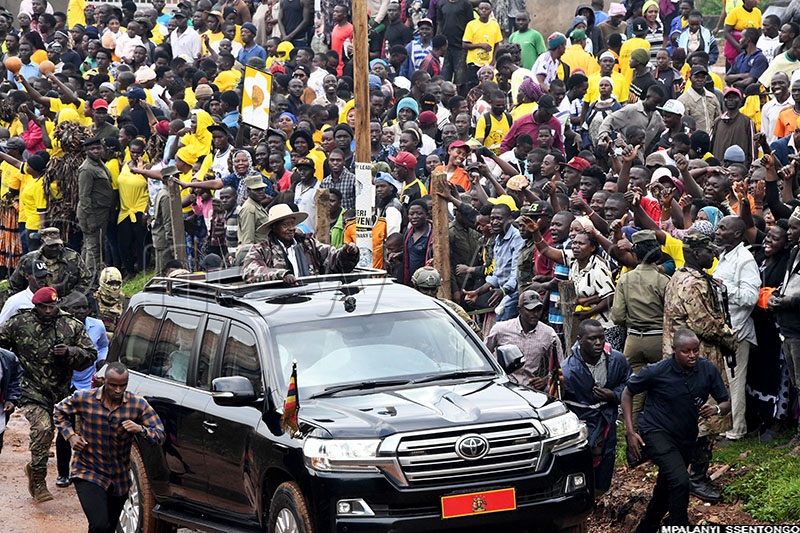
Museveni's message was clear: “Leadership must diagnose the people's problems like a good doctor and prescribe solutions.”
The President emphasised that Uganda’s developmental journey, from a nation defined by scarcity to one experiencing growth, was rooted in accurate diagnosis and strategic planning.
Real Stories of Transformation
Museveni began his Kampala tour by visiting Lillian Mbabazi, a poultry farmer under PDM in Nakawa Division, showcasing how small investments are creating lasting change. “I got a loan and now my business has grown,” she said.
In Mutungo I and Mbuya II, the President met a group of women involved in tailoring. Tuhirirwe Winnie, chairperson of their SACCO, praised government interventions: “We have 250 members across 13 associations. The President saved us from moneylenders. Now we lend to each other.” But she also noted, “We need a bigger workspace and more equipment. The demand is high, but machines are few.”
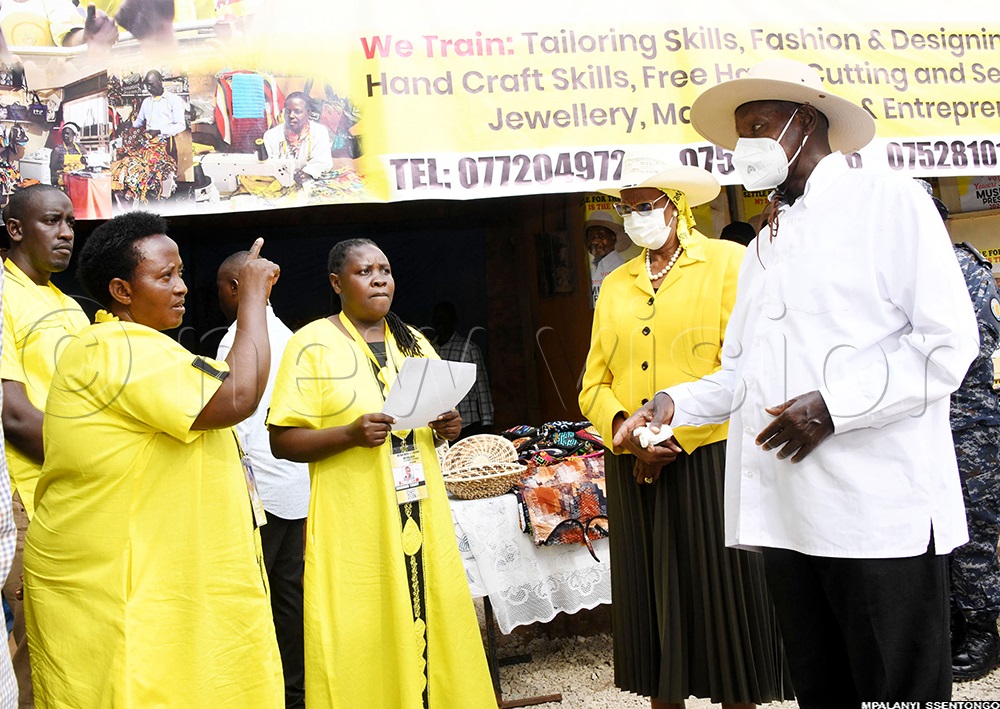
Museveni responded by pledging sh100 million to support their expansion. “I will support you with capital. Start small, grow big. Monday, you’ll receive the money,” he assured.
During the tours, Museveni reaffirmed his commitment to increasing the Parish Development Model (PDM) funds in urban areas to sh300 million per parish, in a move aimed at accelerating economic empowerment and inclusive growth at the grassroots level.
He noted that the people in urban areas are more in numbers and have much more pressing needs like paying rent, etc.
“Young people in towns face unique challenges—rent, food, no land for farming. We must increase PDM support in urban areas and introduce a special fund for youth leaders,” Museveni said.
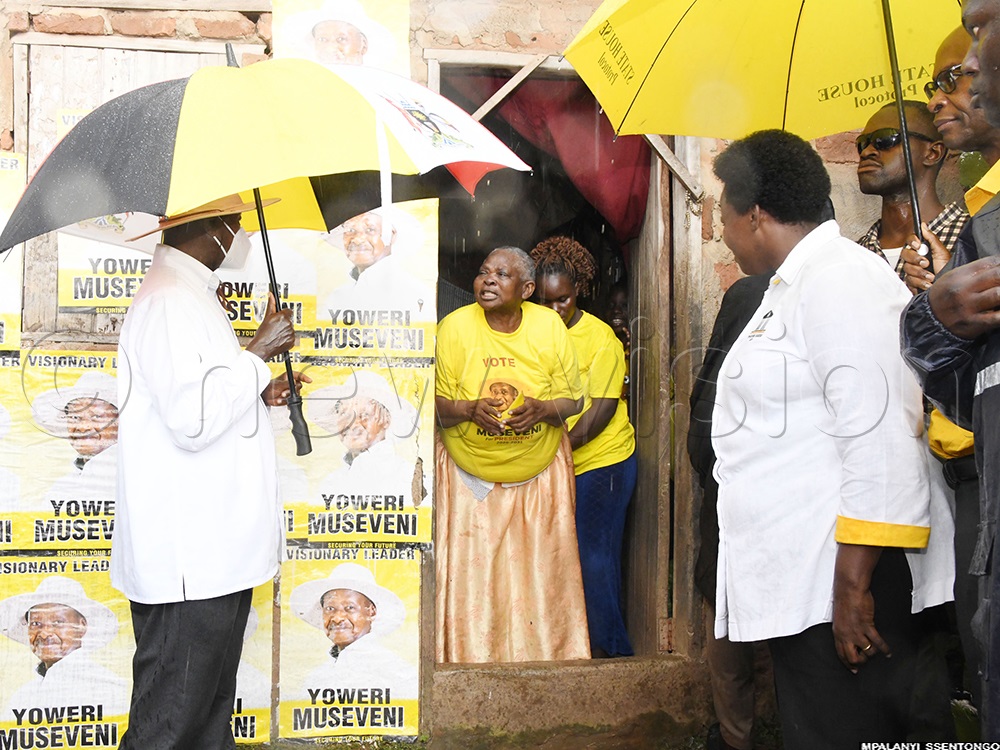
He also warned against corruption within wealth creation programs, promising a crackdown on any misappropriation. “If people are stealing, we shall fight them. That money is for fighting poverty—not enriching a few,” he said.
He asked people to vote NRM contestants who will be able to follow up government programmes, saying that the opposition keep sabotaging government initiatives meant to uplift people from poverty.
Key beneficiary testimonies
Edith Twijukye of Ruzira Women Entrepreneur Emyooga SACCO said she used funds to buy cows and start a small shop, significantly improving her family’s livelihood.
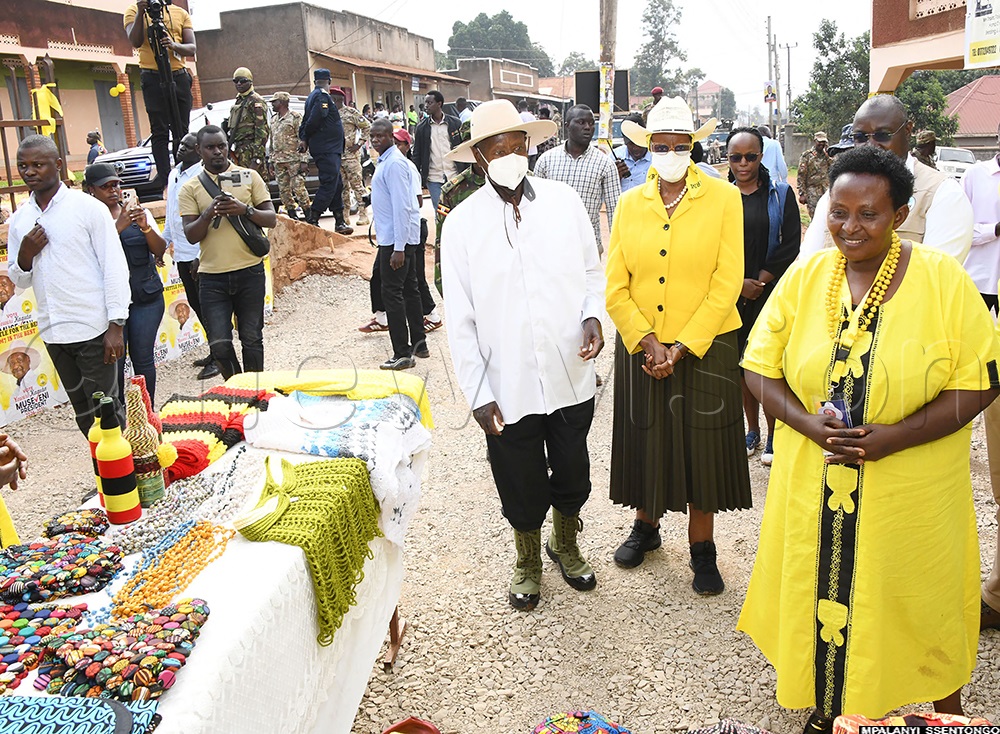
Robinah Nakaddu from Mbuya Tailors noted their SACCO received sh50 million and has started lending internally.
Swabrina Nalukwago, Banda SACCO chairperson, said their group has grown from sh30 million to over sh300 million in savings. “Many members have started constructing houses,” she said.
Justice Ssemyonjo, LC1 and long-serving leader said, “The youth have embraced PDM. One young man started with one goat and now owns six.”
Despite successes, challenges like land wrangles and limited equipment persist. SACCO leaders like Kibuuka Adam from Mutungo requested transportation and protection from land evictions, while Tuhirirwe Winnie stressed the need for more capital.
Museveni’s six-point strategy
At MUBS Graduation Grounds, President Museveni laid out a comprehensive six-point framework for Uganda’s transformation:
Peace and Security
The President reaffirmed that Uganda is secure and stable, “No one can bring war here. We have the strength and capacity,” he declared. However, he highlighted rising crime, citing the Entebbe family massacre. “We will catch the criminals. Our cameras, forensic systems, and blood analysis capacity are advanced,” he said.
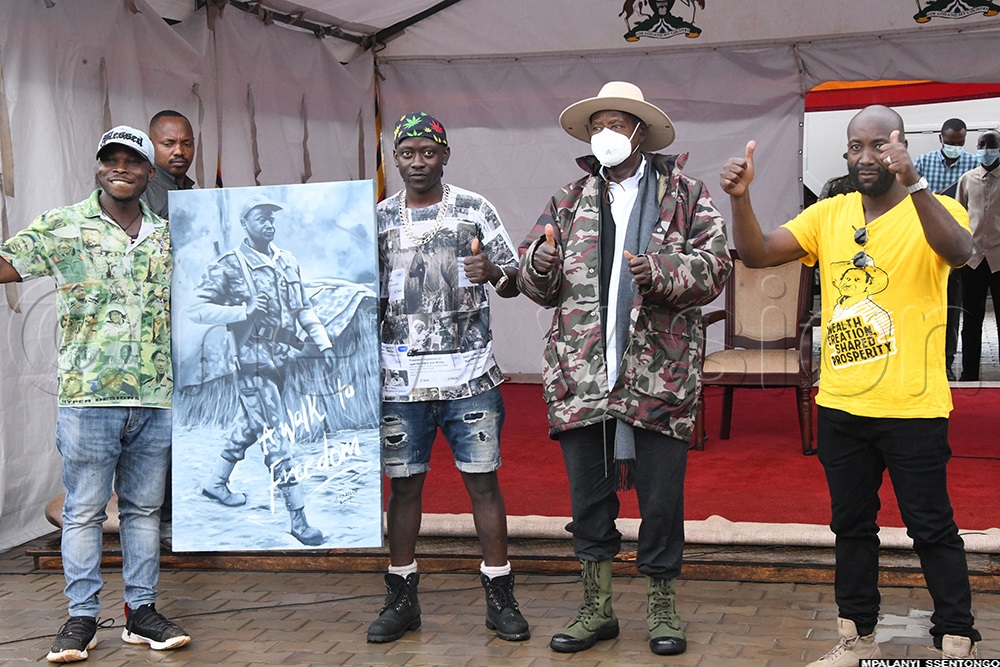
He criticised judicial corruption and pledged action: “I won’t allow judicial officers to release criminals illegally. Politicians must help us expose and follow up on such cases.”
Development – infrastructure and urban planning
Development, Museveni said, includes electricity, water, roads, schools, and housing. He decried poor urban planning: “People are misusing space—building laterally with only a few occupants. We need skyscrapers like in Nakulabye.”
He lambasted inefficiencies in the Ministry of Works: “The road from Kasanjje to Nakawuka should not have been left to deteriorate. I’ve warned the Ministry of Local Government too. Roads are in Uganda, not Congo.”
Wealth Creation
Museveni made a compelling case for wealth creation as the foundation for all development. “People don’t sleep on roads. They sleep in homes. Wealth starts from the home.”
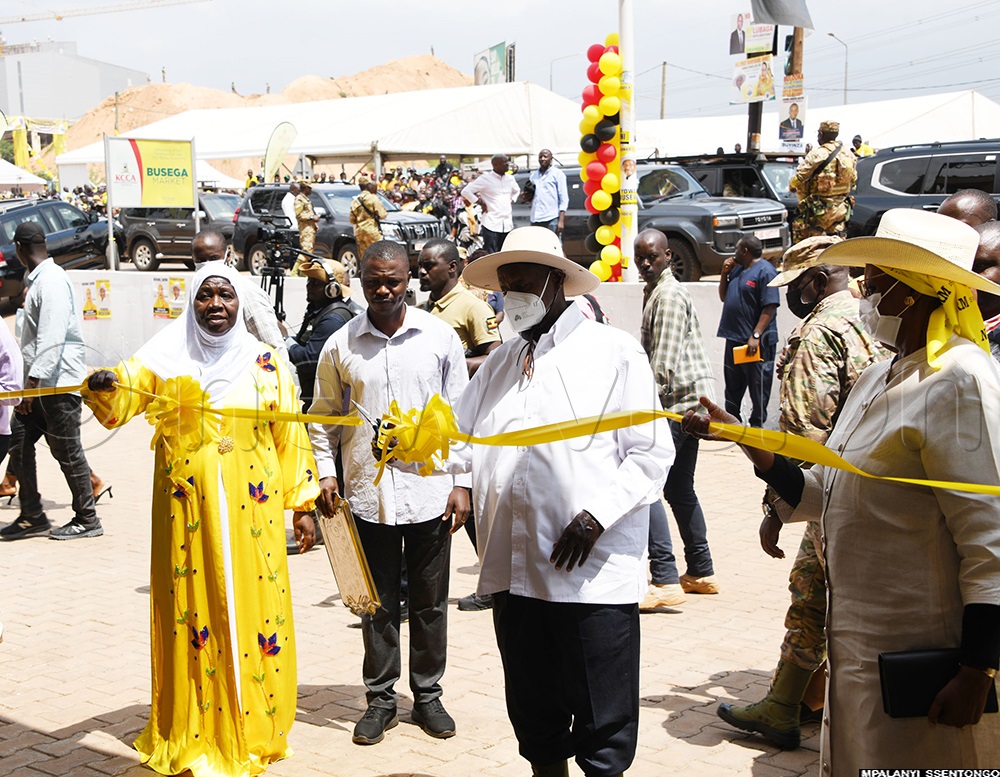
He cited success stories: George Matongo in Ngoma Subcounty sells 900 liters of milk daily, up from 50 cows.
Igala Joseph of Soroti now owns hundreds of cows, makes soap, and earns over sh1 billion annually.
Rashida Namubiru of Butambala turned sh1 million PDM funds into a thriving goat and banana farm.
He outlined four key wealth creation paths: Commercial Agriculture, Artisanship (shoe-making, furniture, metalwork), Services (tailoring, salons, catering) and ICT.
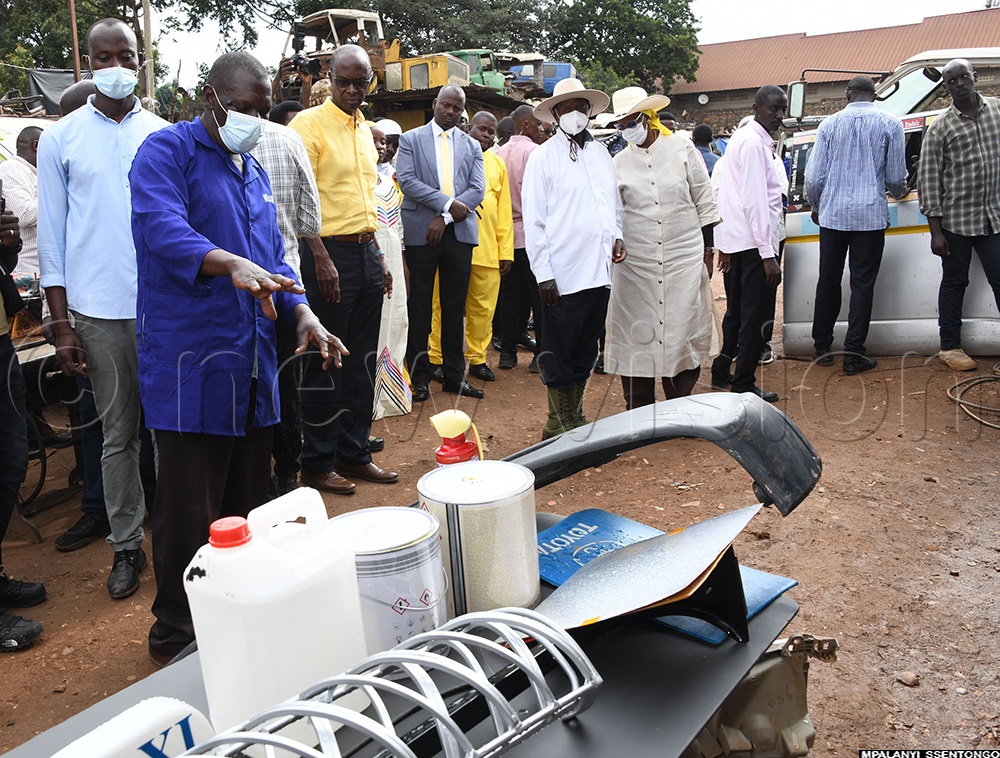
Jobs
“Jobs come from wealth,” the President said. Uganda currently has 1.2 million factory workers and 480,000 government employees. He called on youth to embrace wealth creation pathways to drive employment.
Services
Museveni emphasised expanding service provision: “With money, you can access services like education and health. Services are both wealth creators and wealth enablers.”
Markets and regional integration
The President stressed regional cooperation to expand markets. “Whoever talks tribalism is your enemy. Africa must integrate. Latin America failed due to disunity,” he warned.
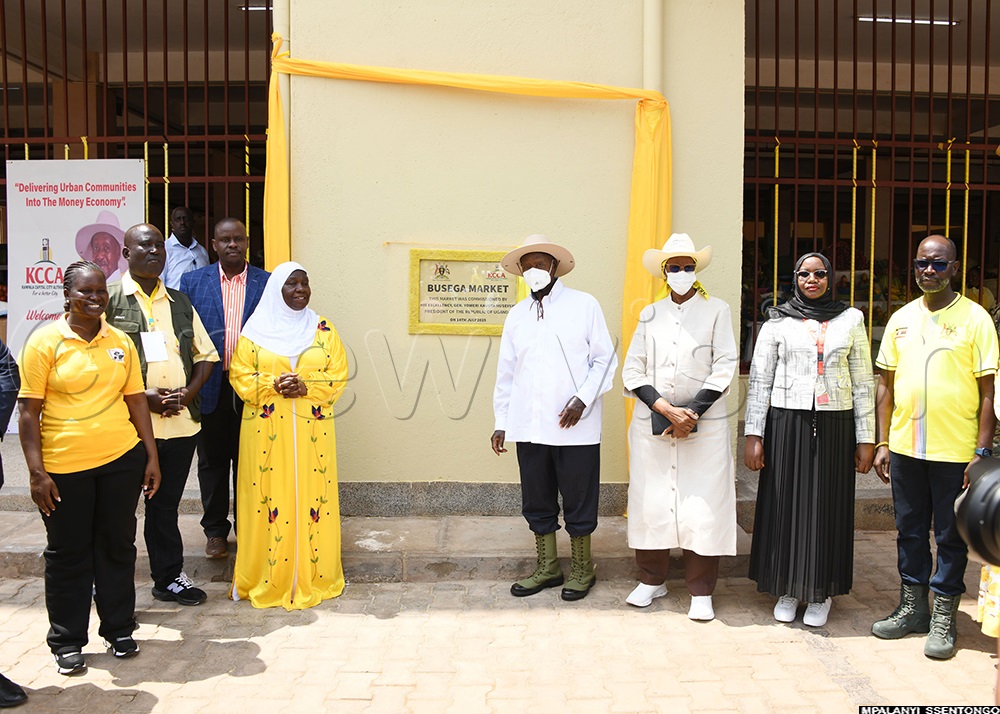
He also pledged to strengthen intra-city markets, including informal groups in Kampala’s ghettos. “For Kampala divisions, I’m increasing support from sh100 million to sh1 billion annually,” he said.
Additional contributions
Museveni donated shillings 200 million to the MUBS Staff SACCO and shillings 300 million to the Muslim SACCO at MUBS.
He donated shillings 12 million each to LC1s for TukTuks to aid community mobilisation.
Political unity and policy enforcement
The President urged continued support for NRM. “NRM cares for the poor. Work with us and we shall help you,” he told leaders.
Salim Uhuru, Kampala Central Mayor, confirmed NRM’s rising influence: “NRM youth dominate leadership. But KCCA still struggles with funding and needs more garbage trucks.”
Museveni assured him, “We will increase PDM and Emyooga funding. But let’s fix KCCA's planning issues too.”
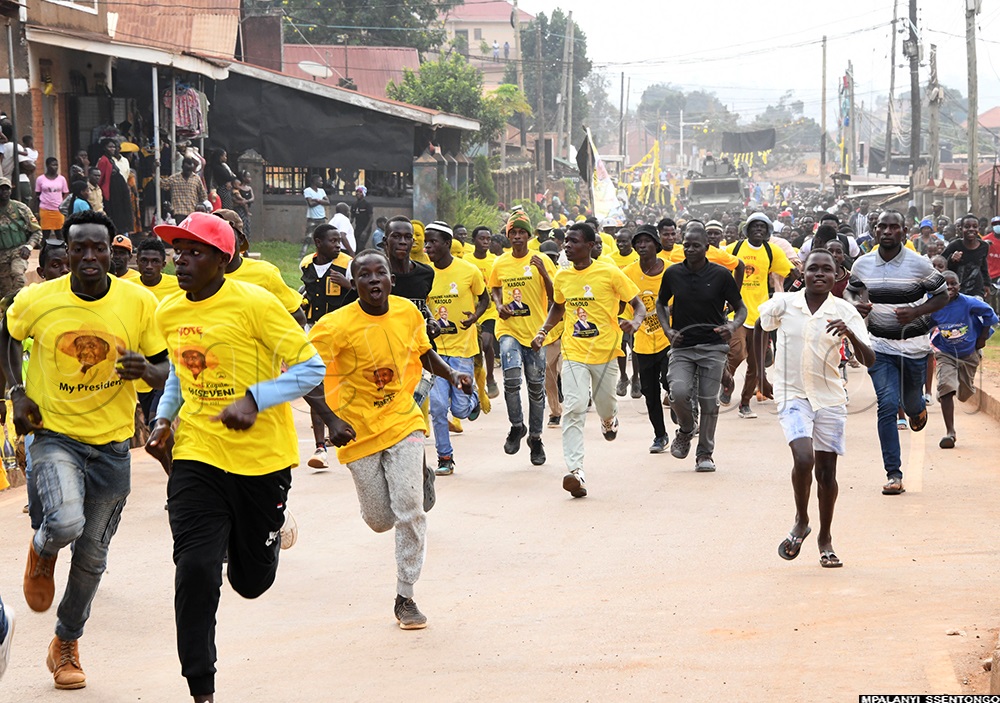
President Museveni said that the wealth creation tour was a diagnosis, a blueprint, and a moral call for unity, wealth creation, and responsible leadership.
Museveni concluded his sweeping nationwide wealth creation assessment tour with an ambitious set of promises aimed squarely at lifting Uganda’s urban poor, strengthening grassroots financial empowerment structures, and reforming service delivery.
The tour culminated in a rally at Kololo Ceremonial Grounds and a morning media engagement at Nakasero State Lodge on Sunday, July 20, 2025.